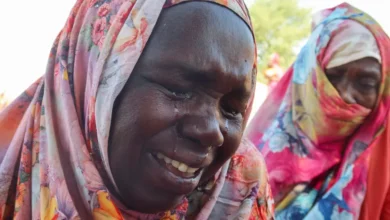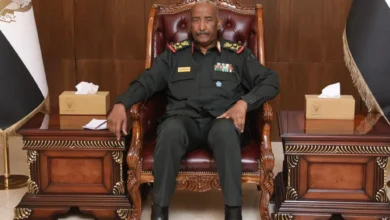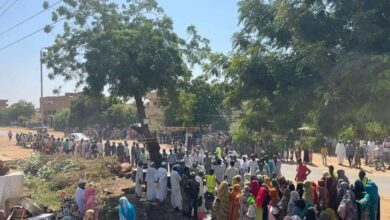The war in Sudan puts the school year of 19 million students at risk

The United Nations Children’s Fund (UNICEF) warned against reversing the continuing war in the Sudan over the school year and said that about 19 million children were out of school as the conflict between the army and rapid support approached completion of its sixth month.
Of this total — or one child in every 3 children in the country — about 6.5 million have lost access to school owing to increased violence and insecurity in their area, with at least 10,400 schools closed in conflict-affected areas.
More than 5.5 million children living in less war-affected areas are waiting for local authorities to confirm whether classes can reopen.
Earlier this week, the Government of the Sudan announced the possibility of resuming schooling in non-war-affected states, but the decision was opposed by several educational and trade union sectors, as dozens of schools in safe states had taken up residence to shelter those fleeing the war in Khartoum.
According to a joint UNICEF/Save the Children press release, approximately 7 million children were out of school before fighting broke out last April.
“If the war continues, no child in the Sudan will be able to return to school in the coming months, leaving them vulnerable to immediate and long-term risks, including displacement, recruitment by armed groups and sexual violence.”
The statement quoted UNICEF Representative in the Sudan Mandip O’Brien as saying that “the Sudan is about to become home to the worst educational crisis in the world”.
Children had been subjected to the horrors of war for half a year and, having been forced to move away from their classrooms, teachers and friends, they were at risk of falling into a vacuum that would threaten the future of a generation.
Mr. Arif Nur, Director of Save the Children Sudan, said that the conflict had highlighted the Sudan as the world’s largest internal displacement crisis, with 4.4 million people newly displaced, including some 2.5 million children.
In addition, 5 million school-age children find themselves trapped in zones of active conflict, placing them at risk of losing critical access to education and basic protection services.
Spending on social services has fallen sharply, with teachers in almost all states not receiving their salaries since the start of the armed conflict some six months ago.
UNICEF and Save the Children called on Sudanese authorities to reopen schools in safe areas, while supporting alternative learning methods in communities where schools could no longer be opened due to safety and security concerns.
They also called on the international community to solidarity with Sudanese children whose education was at stake, and to provide the necessary resources and support to ensure the return of millions of Sudanese children to school, with conflict-affected children having access to learning and psychosocial support in safe places.





